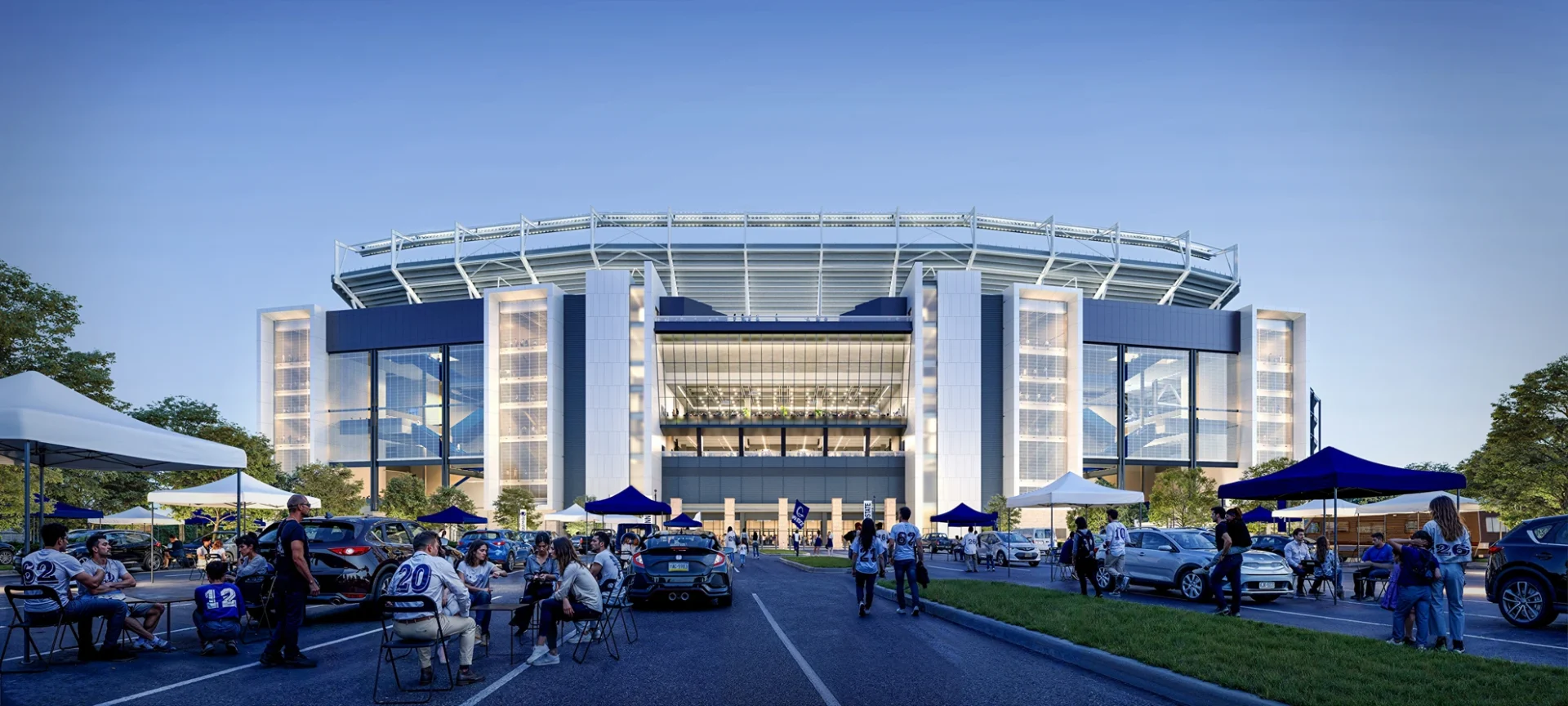Penn State’s $700 million Beaver Stadium renovation can move forward in its entirety following approval by College Township Council on Thursday night.
Council voted unanimously to approve the project’s final land development plan.
The plan revealed little new information — unless you’re interested in stormwater management — about a project that has already been detailed in public meetings and statements by the university. But it was a necessary step before construction could commence on the major improvements planned for the stadium’s revitalization.
“The internal work consists of new restrooms, upgraded concessions, and upgraded seating and broadcast level on the west side of the stadium,” according to the project narrative. “The external work consists of hardscape replacement and expansion on the east and west side of the stadium. These hardscape areas consist of concrete sidewalks, plazas, and site fencing.”
Mark Saville, of project engineer HRG, noted that the renovation plan is largely focused on the stadium’s west side, “which is the last piece that hadn’t seen any significant upgrades in a long period of time…”
As previously detailed by university officials, work on the west side is expected to begin in January with removal of the press box and upper level seating to be replaced by a new structure with suites, club seating and a new press box with broadcast level. Temporary bleachers will be in place for the 2025 and 2026 seasons.
Lower bowl seating will be replaced with club seating in 2026, and the project is expected to be completed before the start of the 2027 season.
“They’re going to add some different price points for seating on the west side with club seating, loge seating, executive and founders lounge suites,” Saville said.
Concourses also will be substantially widened, which Saville said is “about the safety of the movement of people up on the concourse level because some of the concourses were really tight.”
On the exterior of the stadium, fencing is being added for new security perimeters that create plazas for new fan experience spaces. The new perimeters expand what is considered a ticketed area outside the stadium structure, as has already been implemented on the east side for this season.
The project also includes a new 21,000-square-foot welcome center on the west side, which was not mentioned in the land development plan discussion.
Some work already began this summer without requiring a land development plan, such as winterization that will extend the use of the stadium, restroom improvements, wifi upgrades, expanded concessions, new video boards and the addition of four escalators, two each at Gate A and Gate E on the east side.
A total of 12 escalators and 24 elevators will be added during the renovations.
“With the early addition of the escalators, they have significantly improved the movement of people from the field level up to the concourse level of those areas,” Saville said. “What I’ve heard from the last game was that the escalators improved the exit from the stadium also, that they were able to clear the stadium within an hour after the game because the escalators were a significant improvement in moving people out of the stadium from that side.”
The project will increase the impervious area around the stadium “only slightly,” Saville said, but it will require the addition of a third stormwater management facility to meet Department of Environmental Protection requirements. Each is placed on a “regional basis” near the stadium in “areas that are really well suited for stormwater management facilities.”
Conditions of the land development approval include that the new stormwater management facility must be constructed at the start of the project.
Penn State’s Board of Trustees approved an initial $70 million for the Beaver Stadium renovation in 2023 and authorized up to $630 million more in May (with two members voting no and three abstaining). Penn State officials said no tuition or tax dollars will be used, and the project will be financed by university-backed debt to be paid by the athletic department, along with donations.
The university has, to date, announced five major gifts to the project totaling $60 million.



